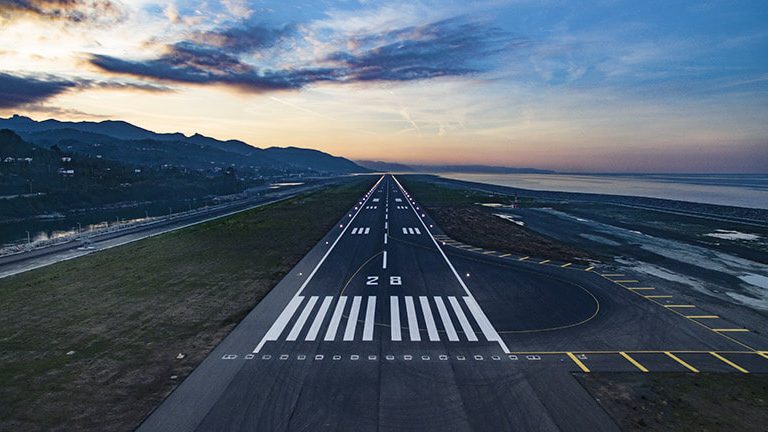
SOLIS Electric Aircraft of the Future
Passenger Transport – Taxis – Security and Protection – Medical and Rescue – Cargo/Freight
The ecological future of aircraft
A new environmentally friendly long-range electric aircraft (SOLIS) is currently under development at COLIBRI AVIATION and will contribute to reducing greenhouse gas emissions from the aviation sector.
The electric vertical take-off and landing aircraft (evtol) will be able to fly for more than four hours without the need to charge any batteries and for more than 2,500 kilometres thanks to its hybrid development with its new generation electric generator.
Aerospace companies are studying evtols as the next innovation in the commercial aviation industry. Electric propulsion systems for an evtol would be powered by renewable energy sources such as solar power or batteries charged from an airport roof.
Global warming: the impact of air travel
Since the late 1970s, air transport has had a significant impact on climate change. Not only does it emit greenhouse gases that accelerate climate change, but its contrails can also increase cloud formation and cause changes in the Earth’s temperature and weather patterns.
Greenhouse gas emissions from the aviation sector are on the rise, with a significant increase between 2005 and 2009. Greenhouse gas emissions from international flights increased by more than 27% between 1990 and 2012, and emissions from domestic flights also increased. In addition, there were about 12 billion air passengers in 2016 alone.
These emissions are expected to triple in the coming years if left unchecked. Greenhouse gas emissions from aviation must be reduced if we are to avoid further disasters and maintain a sustainable planet. Solving this problem requires not only improving fuel efficiency, but also changing the way we travel and use aircraft.
The future of green air travel is electric
One potential solution is to develop electric aircraft with improved battery technology, which could help reduce greenhouse gas emissions from the aviation sector.
An electric aircraft for personal use is being developed, the “SOLIS”. Green aircraft are gradually becoming a reality thanks to recent developments in battery technology, energy storage, electric propulsion systems, renewable energy generation and aircraft design.
Green aircraft are one of many options for improving sustainability in the aviation sector. Green aircraft can also offer other benefits such as lower noise levels and cost savings. Green aircraft can become more efficient than their conventional counterparts through new technologies that can improve aircraft design, propulsion systems and energy storage. Green aircraft can also potentially reduce the environmental impact of aviation through improved air traffic control and better routes.
These new green technologies have great potential to improve sustainability in the aviation sector by reducing greenhouse gas emissions. Research into green aircraft is currently underway to make this a reality, but there is still work to be done, and we at COLIBRI AVIATION are addressing this. Green aircraft are being developed, and we are working on them at COLIBRI AVIATION.
Search help for this page : the future of green air travel is electric
Air transport pollution, air pollution solution, air pollution causes and consequences, air pollution consequences, main air pollutants, air pollution level, Sources of pollution and health effects, Airplane: Pollution champion, What is the impact of airplanes on the environment, Why do airplanes pollute more, How to reduce airplane pollution, Airplane pollution, airplane pollution in the world, airplane carbon footprint, Carbon, Fossil fuels, Energy, Civil aviation, Aerial, Co2, Airlines, Airports, Aeronautics, Aircraft, Dioxide, Carbon dioxide, Global warming, Combustion, Low-cost, Passenger, Worldwide, Boeing, Airline, protect the environment, consequences of pollution, air is bad, fossil fuels, fight against pollution, gas emissions, air pollution, pollutant measurements, air pollution Air navigation, Air sector, Kerosene, International civil aviation, Air carriers, Civil aviation, French civil aviation, Air carriers, Commercial air transport, Air operators, Crash, Air forms, World air traffic, Air operations, World air transport, Civil aviation safety Air pollutants, Dust particles, Pollutants in the atmosphere, Airspace, Fossils, Air France, Civil aviation organization, Aviation safety, Iata, Energy, Against global warming, Baggage, Connections, Climate change, Airport, Fossil fuels, Air-transportation, Aeronautical, Airways, General aviation, For aviation, Traffic-management, International air, Aircraft maintenance, International airport, Carbon emissions, Methane, Co2 emissions, Pilots, Emission, Fossil fuel, Natural gas, Emitted, Gasoline, Planes, Skies, Air services, Carbon dioxide emissions, Airliners, Air traffic management, Tonnes, Unmanned, Airline industry, Air-cargo, Alternative-fuels, Reduce emissions, Global aviation, Power plants


